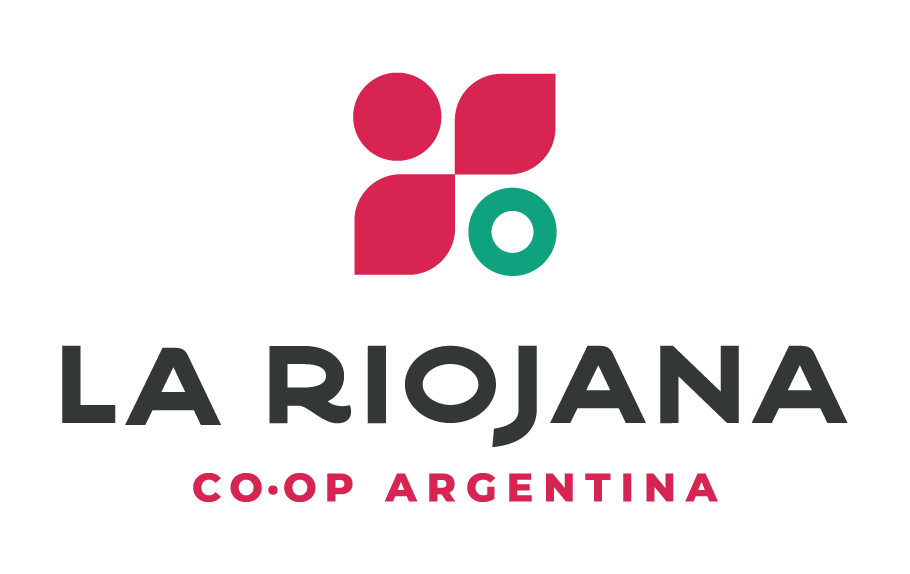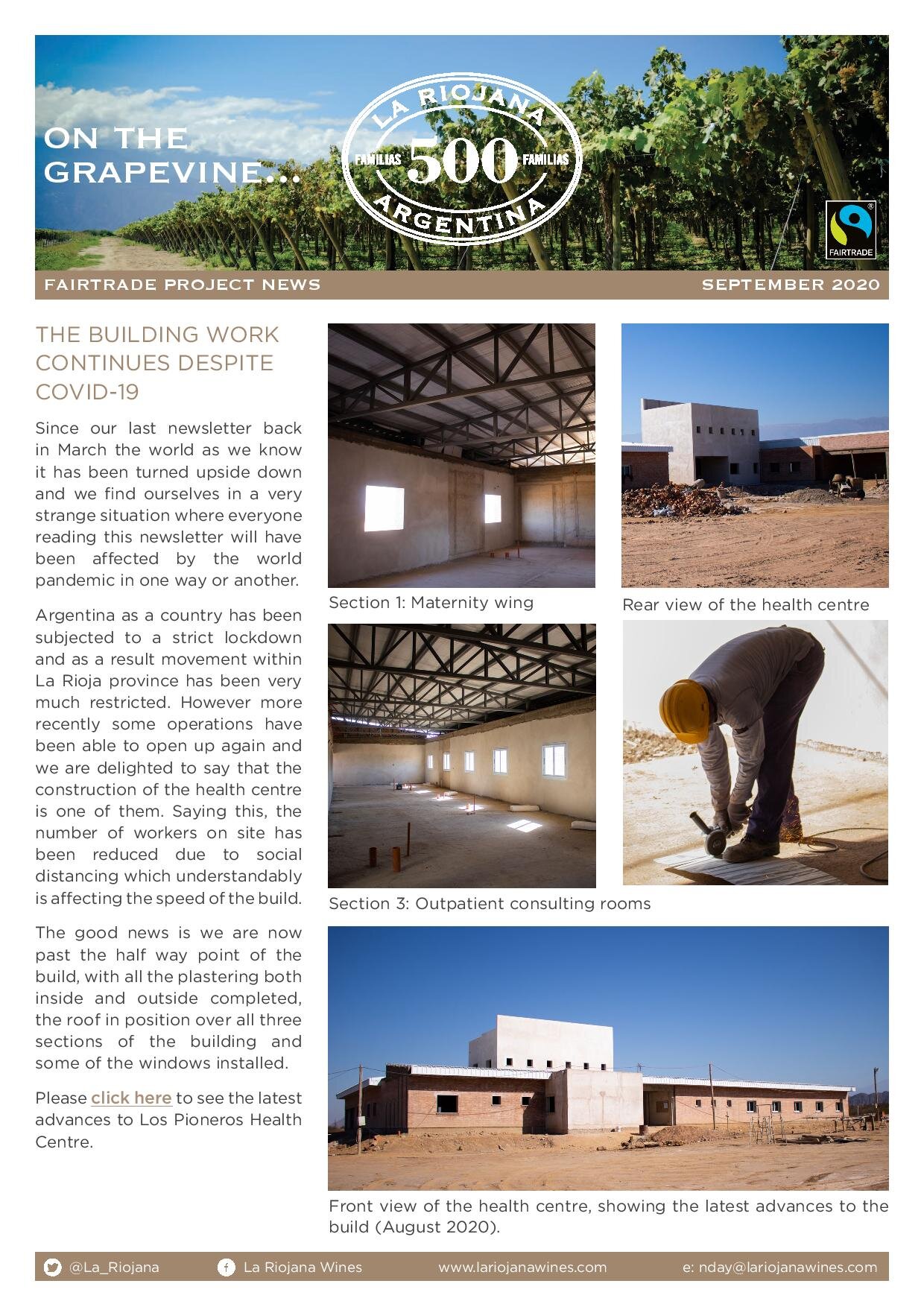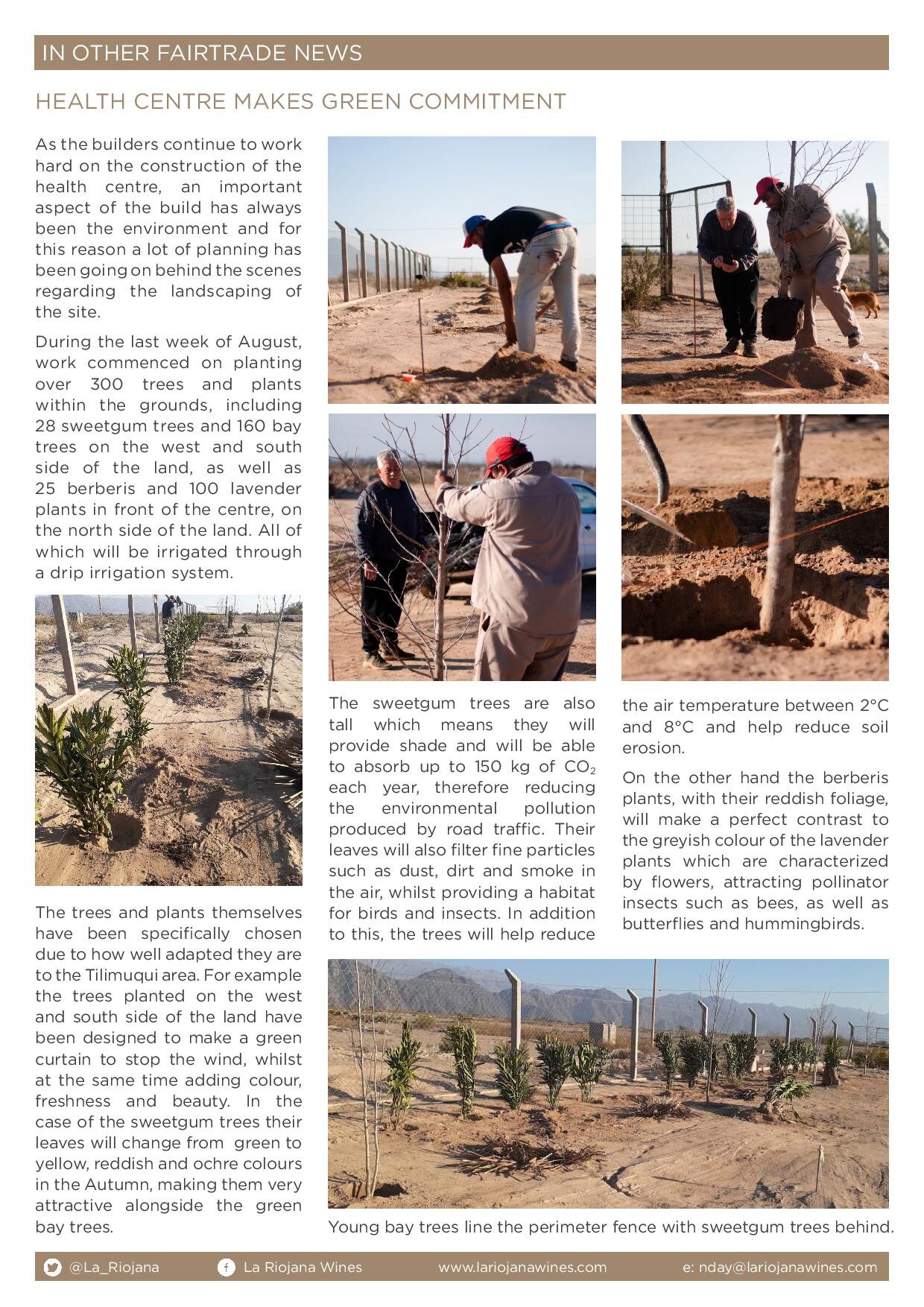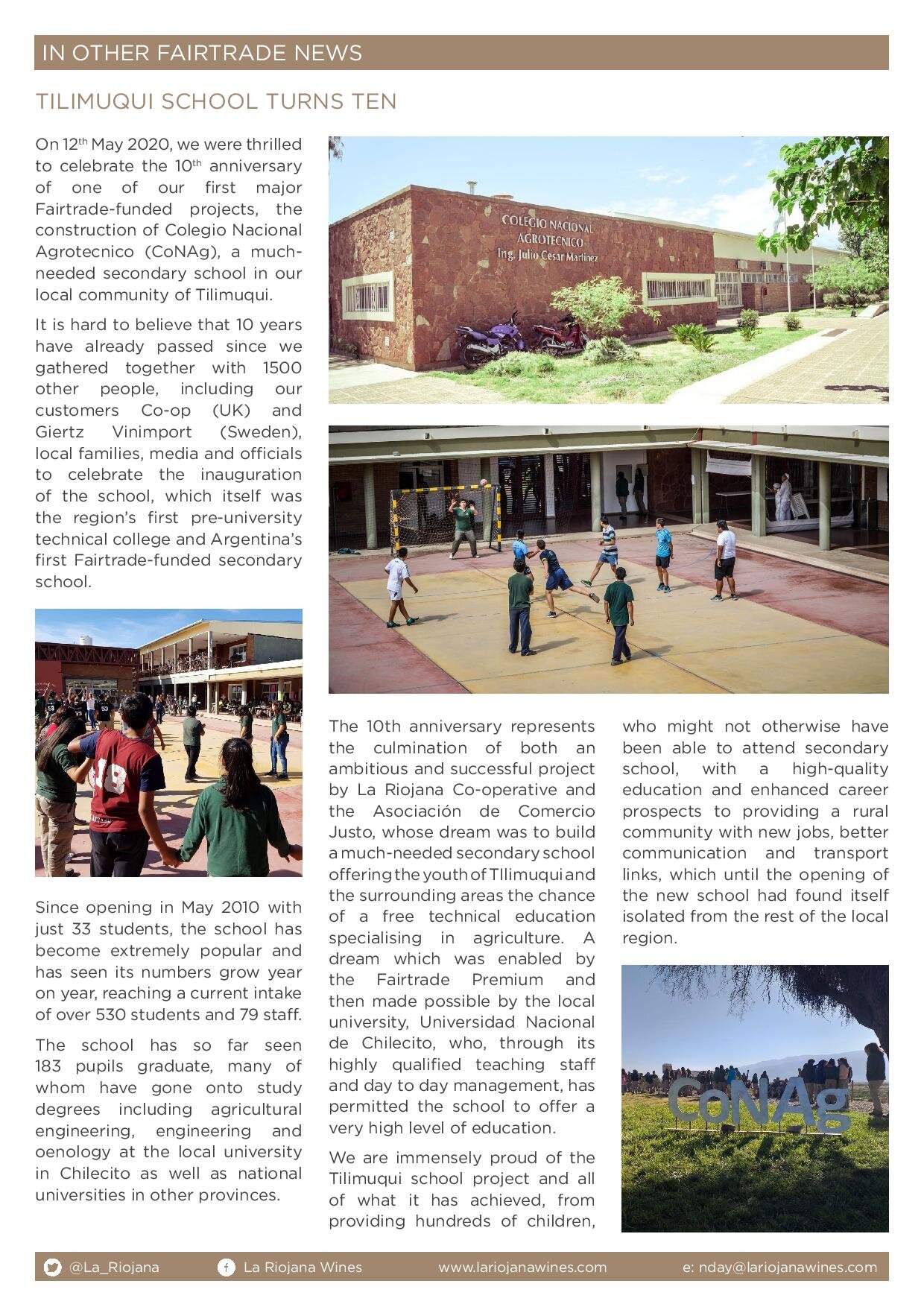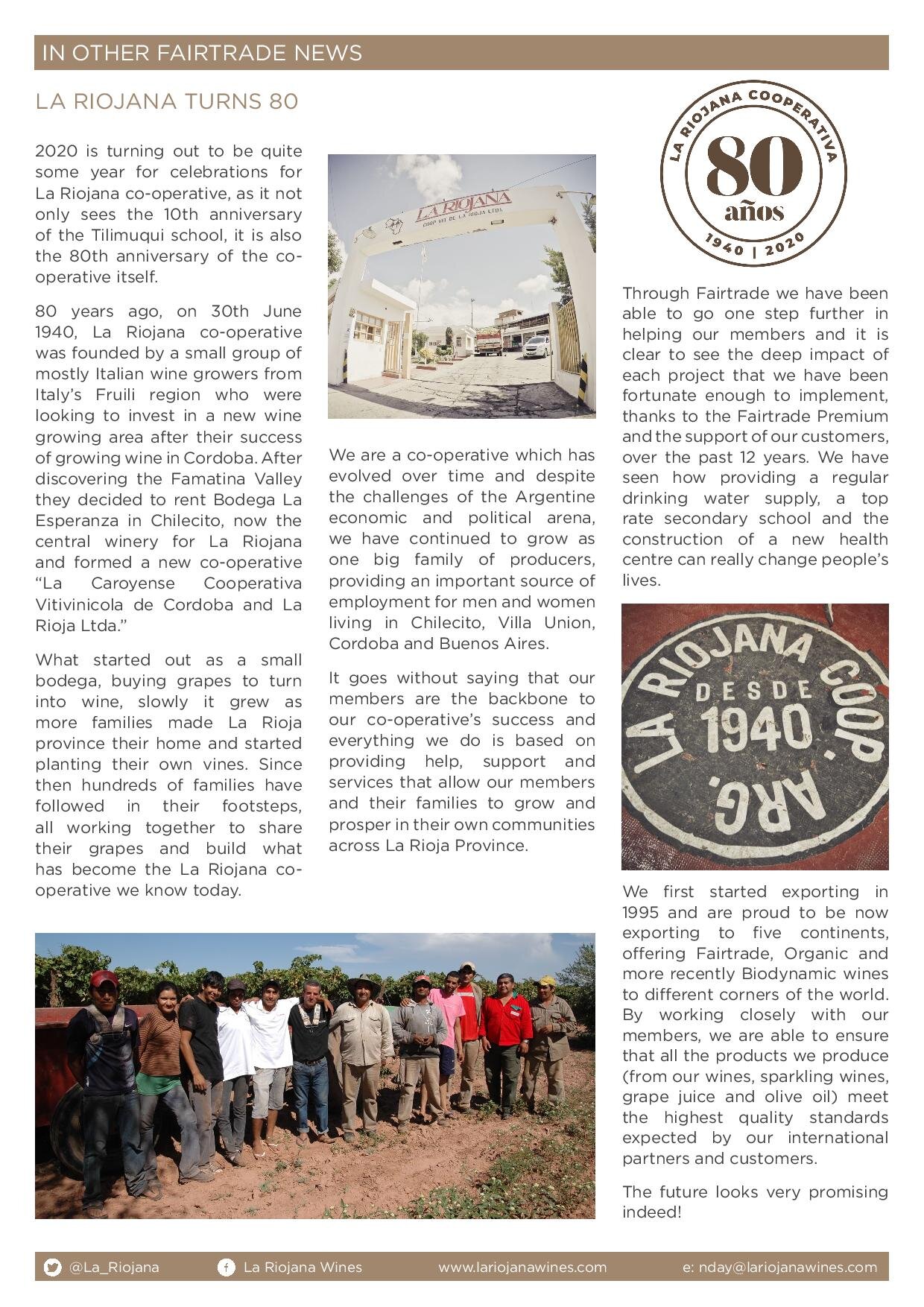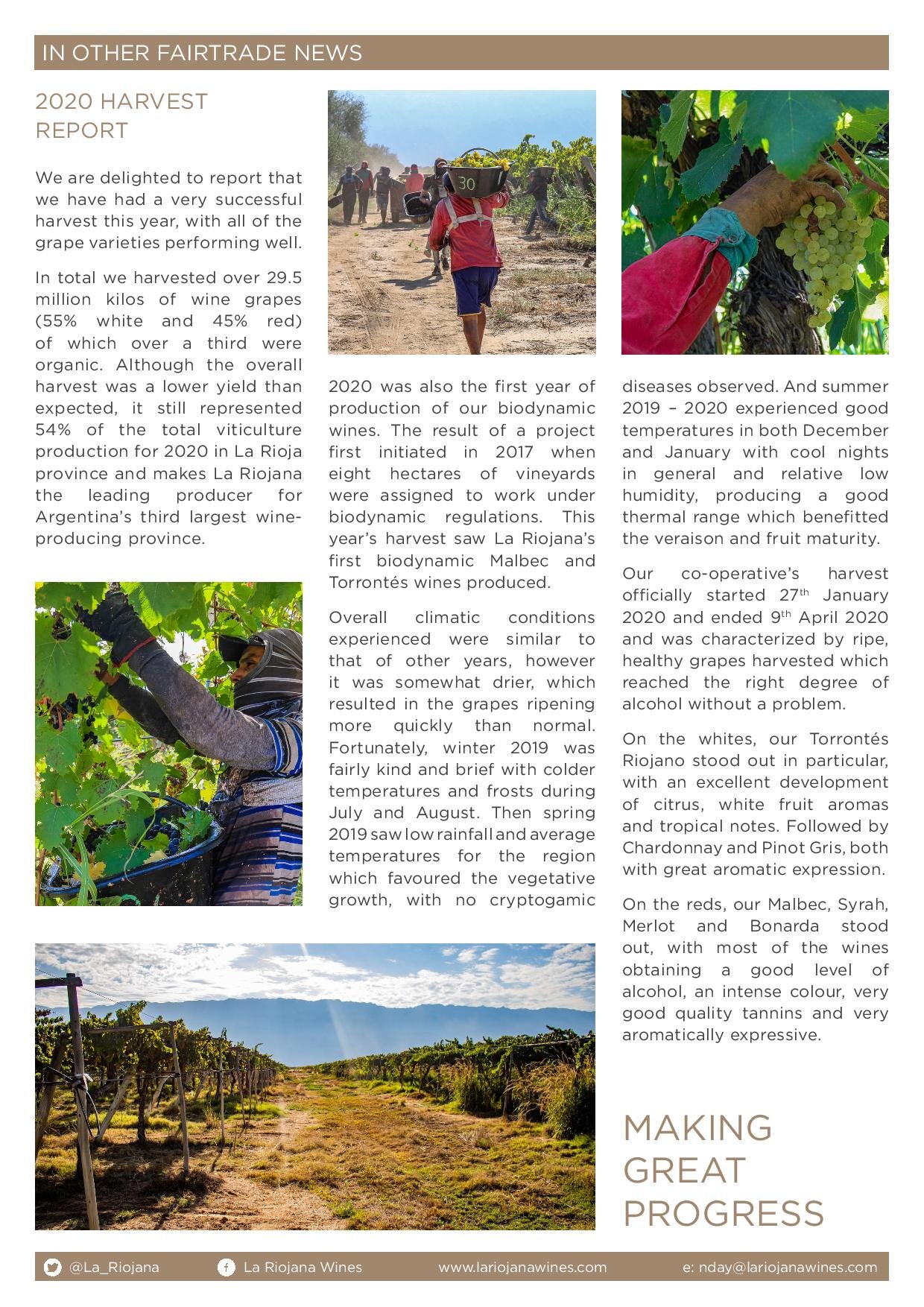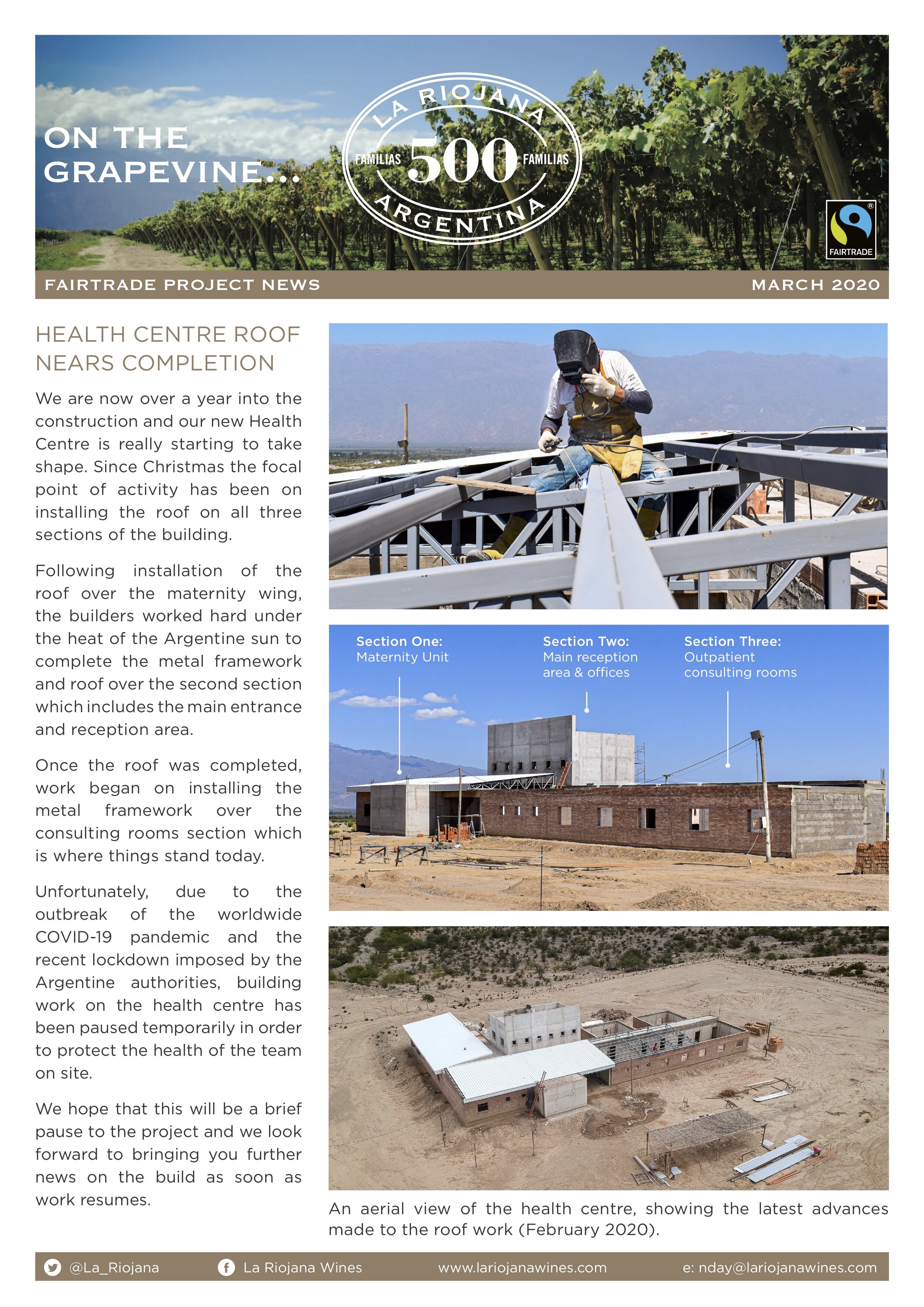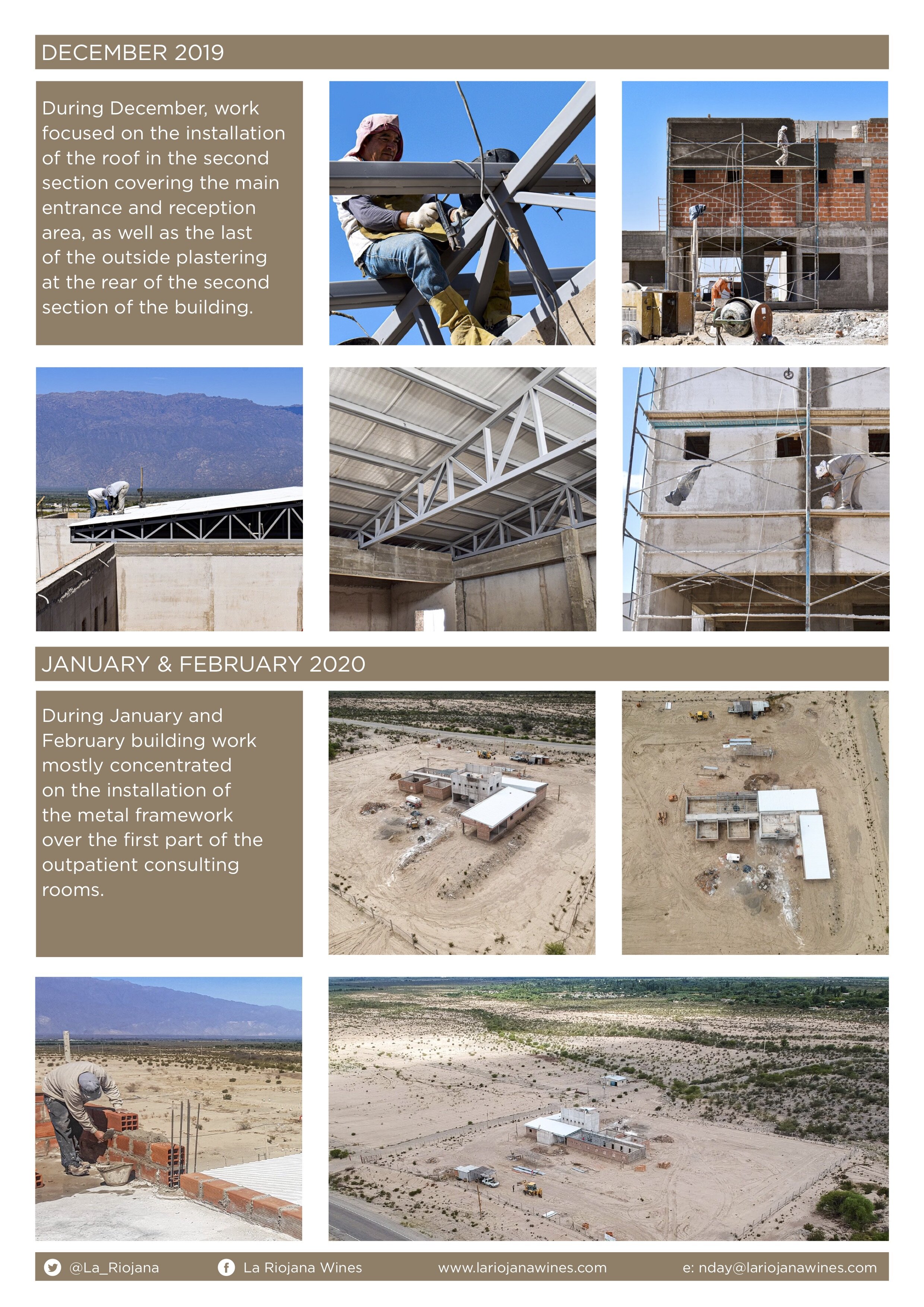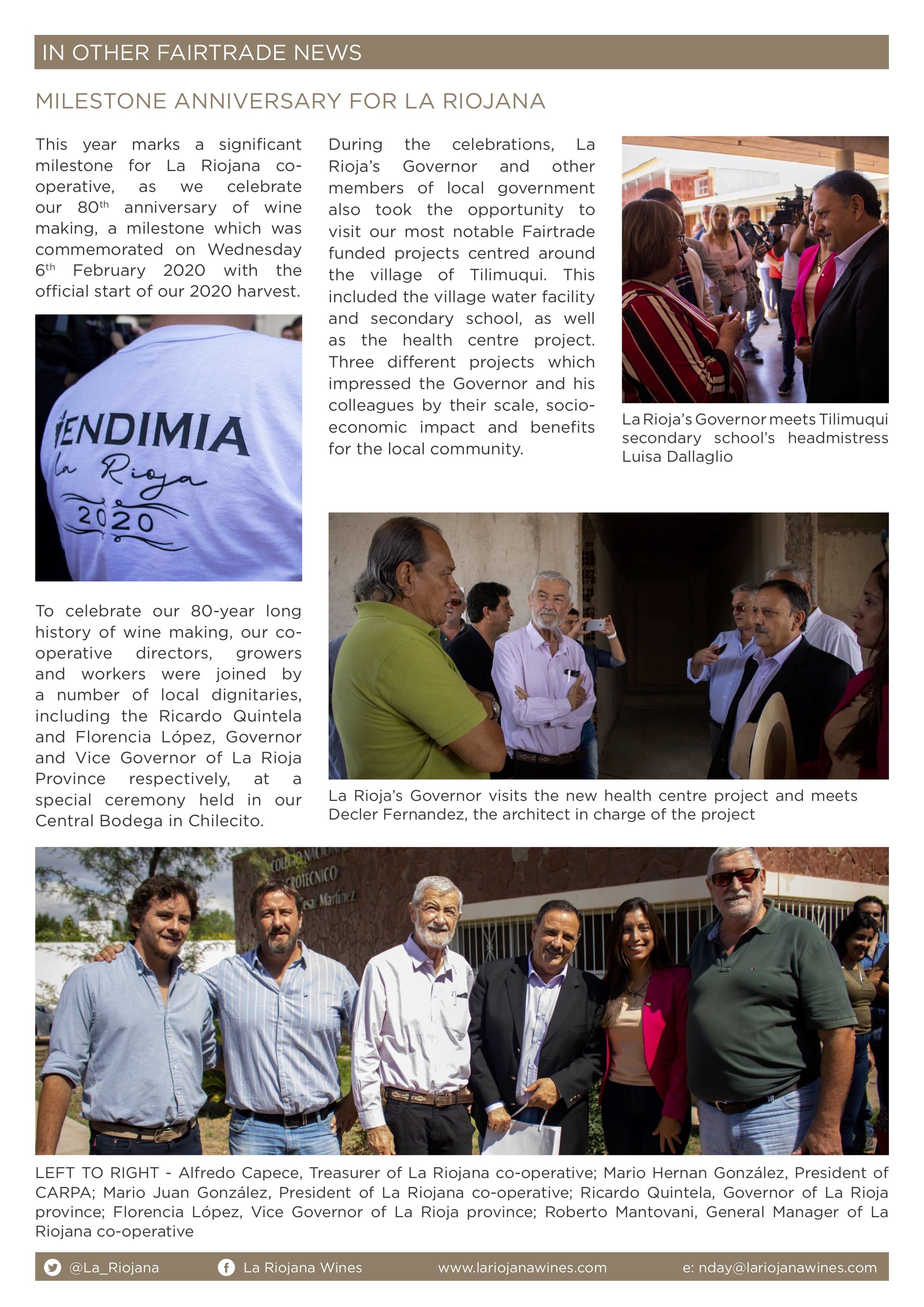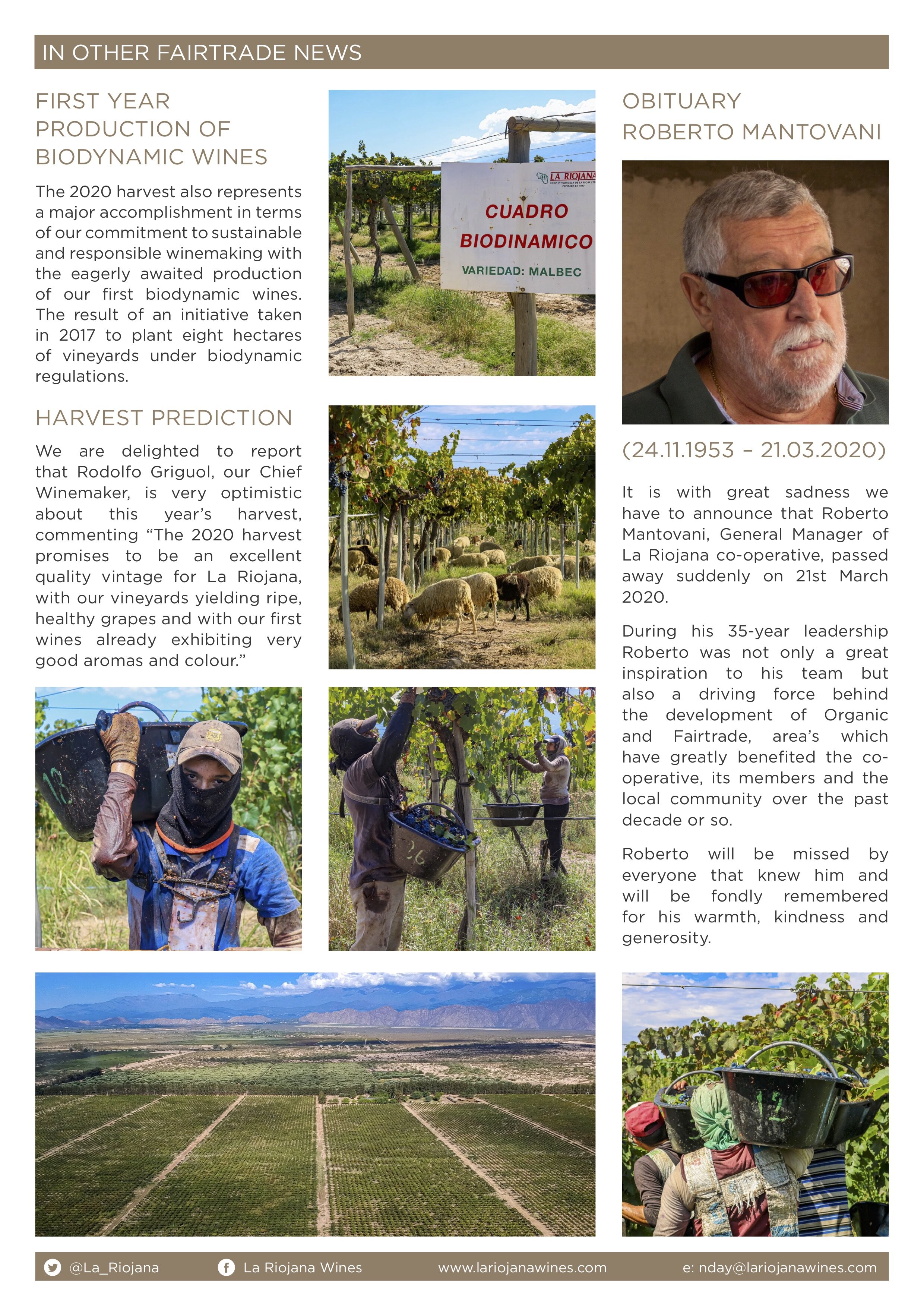News & Awards
LA RIOJANA CO-OPERATIVE VINTAGE REPORT 2020
/For our co-operative, the 2020 harvest marked our 80th harvest, which officially started on 27th January 2020 and ended on 9th April 2020. Overall the climatic conditions experienced were similar to other years, however due to little rain, it was on the whole somewhat drier than previous years, which resulted in the grapes ripening more quickly than normal. In La Rioja, Argentina’s third largest wine-producing province, the 2020 harvest was characterized by the ripeness and healthiness of the grapes harvested which has produced good quality wines as a result.
This year we harvested a total of 29,522,309 million kilos of wine grapes (55% white and 45% red), with the majority coming from the farms of our 360 members and our long-term contract growers. Taking into account that La Rioja province harvested a total of 54 million kilos this vintage, the lowest harvest in 40 years, La Riojana represents 54% of the viticulture production, making us the leading wine producer in the province.
In terms of climatic conditions and how they affected the 2020 vintage, winter 2019 was fairly kind and brief with the significant cooler weather starting in June and then colder temperatures and frosts during July and August. The first few days of September saw some low temperatures which fortunately did not affect the bud break of the wine grapes and occurred satisfactorily in most of the vineyards from the middle to the end of the month.
Spring 2019 saw low rainfall and average temperatures for the region which favoured the vegetative growth of the vineyards, with no cryptogamic diseases observed. There were some zondas (warm winds from the north) recorded which did affect the fruit set in some places but not to a major degree.
Summer 2019 - 2020 experienced good temperatures in both December and January. In general, the nights were rather cool, with relative low humidity. The good thermal range favoured the veraison and fruit maturity. Some rain was recorded at the end of December, producing some cases of hail which affected a few vineyards in the west of La Rioja region.
The harvest began at the end of January (with the first grapes being picked in the Tilimuqui area) and was characterized by ripe, healthy grapes, which had reached the right degree of alcohol with virtually no problem. There was some rain recorded during the harvest in February and March, but it had little effect on the actual harvest.
This year all the varieties performed well, with Torrontés Riojano standing out amongst the whites, with an excellent development of citrus, white fruit aromas and tropical notes, followed by Chardonnay which fully expressed its varietal typicity, with citrus, pear, mango aromas and a delicate touch of honey. In addition to this the Pinot Gris produced was very aromatic and fresh with citrus and white peach notes.
Among the red varieties, Malbec, Syrah, Merlot and Bonarda stood out, with Syrah being the highest volume harvested. Most of the wines have a good level of alcohol, with intense colour, very good quality tannins (with absence of any green and dry notes) and are very aromatically expressive.
TILIMUQUI SCHOOL TURNS TEN
/Ten years ago, on 12th May 2010, a crowd of over 1500 people, including our co-operative members, workers and their families, local dignitaries, representatives from The Co-op (UK) and Giertz Vinimport (Sweden), local media and many people from Tilimuqui and Chilecito, gathered together to celebrate the official inauguration of the Colegio Nacional Agrotecnico (CoNAg) in Tilimuqui. An historical occasion which saw the birth of the region’s first pre-university technical college and Argentina’s first Fairtrade-funded secondary school.
Since opening in May 2010 with just 33 students, the school has become extremely popular and has seen its student numbers grow year on year, reaching a current intake of over 530 students (March 2020), which are supported by a team of 56 teachers, 12 administrative staff, 10 maintenance personnel and a head teacher.
In its first 10 years, the school has created extra classrooms to accommodate the rising numbers of pupils and has benefitted from a donation of 15 hectares of land, made by the local government, allowing the students to carry out experimental and practical farming. Something which has been vital to their education, giving students the opportunity to learn first-hand about growing crops and raising animals, providing some of their crops for the school dining room and making different products such as jams and dried fruits to show and sell to the public. In addition to this, the students have taken part in numerous other school and extracurricular activities, including national sport competitions and camping trips.
The 10th anniversary represents the culmination of an ambitious and successful project by La Riojana Co-operative and the Asociación de Comercio Justo, whose dream was to build a much-needed secondary school offering the youth of TIlimuqui and the surrounding areas the chance of a free technical education specialising in agriculture. A dream enabled by contributions from key customers such as Giertz Vinimport, Sweden and Co-op, UK and made possible by the local university, Universidad Nacional de Chilecito, who, through its highly qualified teaching staff and day to day management, has permitted the school to offer a very high level of education.
The school will not only be responsible for providing hundreds of children, who might not otherwise have been able to attend secondary school, with a high-quality education, it is producing the agriculturalists of tomorrow who in turn will have enhanced career prospects and the chance of a better future. In 2015 the first pupils graduated from the school and as of December 2019 the school has produced a total of 183 graduates. Many of whom have gone onto study degrees including agricultural engineering, engineering and oenology at the local university as well as national universities in other provinces.
The Tilimuqui school project has become a notable legacy for which everyone who has supported it should be extremely proud. It is a project that has not only had a profound impact on the future of the children of Tilimuqui but also a positive socio-economic impact on the entire local community, with the creation of new jobs, better communication and transport links for a village which until the opening of the new school had found itself isolated from the rest of the local region.
